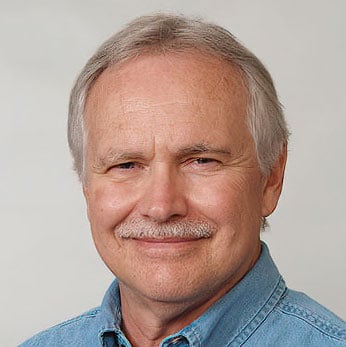The following tip is from the ISA book by Greg McMillan and Hunter Vegas titled 101 Tips for a Successful Automation Career, inspired by the ISA Mentor Program. This is Tip #47, and was written by Hunter.
I was extremely fortunate as a young engineer. Early in my career I took a position as an “instrument engineer” working under a gentleman named Henry Hecht (whom we met earlier). Henry had 50+ years of experience in instrumentation and controls and the other team member, Clyde Barre, had 45 years of experience. I was a little surprised that Henry and Clyde even hired me because I was totally green and knew essentially nothing about the field. (I think they were looking for a young buck to check out the instruments on the upper floors and on the tops of the 200-foot distillation columns but they would never admit to that!)
Whatever the reason, they took me on and from the very outset I badgered them with questions. I wanted to understand everything and with infinite patience those two men taught me everything they could. As control technology shifted from “wind-powered” pneumatics to digital controls, my electrical and computer background gave me a distinct advantage and some bosses might have felt threatened. Not Henry and Clyde. They considered it their DUTY to teach me and in fact we taught each other. I learned about pneumatics and control theory in general, and I taught them about computers, fiber optics, and the digital world. Ultimately they both retired and I eventually assumed the role of Group Leader, but the lesson of growing your direct reports was not lost on me.
Concept: As a leader/boss, you should do everything possible to develop your direct reports. Broaden their skill sets, give them credit when they perform well, encourage them when they fail, and train them to take over your job. If you are “irreplaceable” then you can never leave the position you are in!
Details: One of the inherent duties of any leadership position is to train your direct reports to take over your job. Even if that never happens, there is nothing but upside to having competent team members who can take over when you are busy or unavailable. On the other hand, nothing can divide and destroy a team quicker than a boss/leader who intentionally “holds people down” to protect his or her current position or serve his own interests. Ironically such behavior may drive the team members to transfer out, get promoted, and eventually become the leader’s boss!
There is no downside to teaching your direct reports everything possible, and do not limit your tutelage to technical matters only. Young engineers often need direction on interpersonal skills, client management, and a whole host of other non-engineering subjects. At times it may feel more like parenting than engineering, but the end result will be all good.
Watch-Outs: Be wary of any boss who intentionally withholds information or refuses to take the time to teach or explain something. Working for a suspicious dictator is not enjoyable!
Also beware of a boss who takes credit for the work of his team but fails to credit the members who actually did the work. This is a sure sign of a manager who does NOT have his team’s interests at heart.
Exceptions: None.
Insight: For a senior engineer or project manager, watching a fresh out of school, green engineer blossom into a competent and sought after professional is wonderfully fulfilling. It almost IS like parenting, except they rarely ask to borrow your car.
Rule of Thumb: Developing direct reports is a fundamental duty of the boss/leader position. Take the time and make the effort to teach and grow the next generation of engineering talent.
About the Author
Gregory K. McMillan, CAP, is a retired Senior Fellow from Solutia/Monsanto where he worked in engineering technology on process control improvement. Greg was also an affiliate professor for Washington University in Saint Louis. Greg is an ISA Fellow and received the ISA Kermit Fischer Environmental Award for pH control in 1991, the Control magazine Engineer of the Year award for the process industry in 1994, was inducted into the Control magazine Process Automation Hall of Fame in 2001, was honored by InTech magazine in 2003 as one of the most influential innovators in automation, and received the ISA Life Achievement Award in 2010. Greg is the author of numerous books on process control, including Advances in Reactor Measurement and Control and Essentials of Modern Measurements and Final Elements in the Process Industry. Greg has been the monthly "Control Talk" columnist for Control magazine since 2002. Presently, Greg is a part time modeling and control consultant in Technology for Process Simulation for Emerson Automation Solutions specializing in the use of the virtual plant for exploring new opportunities. He spends most of his time writing, teaching and leading the ISA Mentor Program he founded in 2011.
Hunter Vegas, P.E., holds a B.S.E.E. degree from Tulane University and an M.B.A. from Wake Forest University. His job titles have included instrument engineer, production engineer, instrumentation group leader, principal automation engineer, and unit production manager. In 2001, he joined Avid Solutions, Inc., as an engineering manager and lead project engineer, where he works today. Hunter has executed nearly 2,000 instrumentation and control projects over his career, with budgets ranging from a few thousand to millions of dollars. He is proficient in field instrumentation sizing and selection, safety interlock design, electrical design, advanced control strategy, and numerous control system hardware and software platforms.




